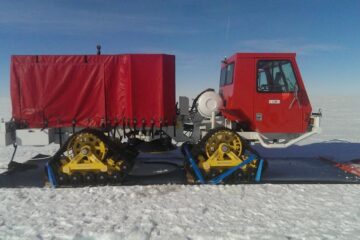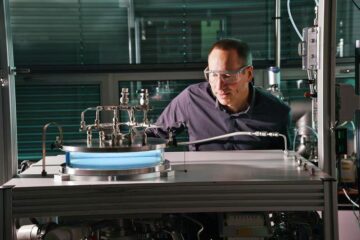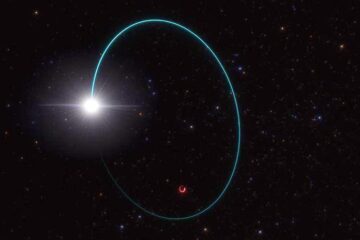EU research delivers cutting-edge solutions for cleaner, more efficient and eco-friendly industrial processes

On 16 July, the European Commission will organise a one-day media briefing on the highly topical issue of clean technologies and new industrial processes, to be chaired by Philippe Busquin, EU Research Commissioner. Key experts from research and industry will describe how EU research is meeting the challenge of sustainable production through clean technologies. The briefing and ensuing press visit will highlight how innovative – and commercially successful – industrial processes can respect the environment – and at the same time save resources and energy, reduce production costs and improve life cycle management.
KEY ISSUES
Europe`s industry needs to spend less on resources and energy, whilst increasing the reliability and durability of products and processes – all in an environmentally friendly and competitive way.
Clean technologies are a key element of the equation. They already play a crucial part in the transformation of traditional industries, as well as in the emergence of new sectors of activity – research-intensive, high added value enterprises.
Sustainable growth and competitiveness must learn to go hand in hand. The challenge is to re-think overall production and design processes – as well as consumption patterns. That is to say, to evolve from resource-based to knowledge-based strategies, from quantity to quality, from mass-produced, discardable products to higher added-value, eco-efficient and consumer-friendly ones.
Concretely, this implies
- Developing state-of-the-art production technologies that factor in environmental and safety concerns in all industrial sectors and at all stages of the process,
- Creating the best designs for „active“ recycling and „co-processing“,
- Substituting safer materials to hazardous ones,
- Substituting innovative fuels – including cost efficient „pre-treated“ industrial wastes – to classic energy sources,
- integrating „design-production-use-service-end-of-life“ and taking responsibility for the overall product life cycle.
THE PRESS PROGRAMME
The morning of the press programme will consist of a number of focused project presentations as well as opportunities for questions, discussions and interviews. Following a press lunch with Commissioner Busquin and EU experts, participants will be invited to an onsite visit to Belgian company Scoribel (Holcim Group), a world leader in the transformation of industrial waste for fuel, and a pioneer of the new industrial approach of „co-processing“.
In detail:
Actions at EU level to foster sustainable industrial production through clean technologies: In the introductory session, EU Commissioner for Research, Philippe Busquin and a leading Member of the European Parliament will provide an overview of EU research and innovation activities to foster clean technologies and recycling processes.
Towards zero liquid waste in plating industries: Media will be given an insight into innovative technological solutions to the industrial contamination of river water by heavy metals (project led by a team in France).
Solutions to combustion residues of power plants: Key players in the field of combustion have joined forces to minimise solid waste. New applications will be presented to the press, notably the production of bricks by mixing fly ashes with raw materials (UK-led European project).
Life-cycle technologies to help reduce electronic waste: Europe produces, uses and throws away more and more electronic products. Large quantities of electronic equipment waste, which contains potentially harmful by-products, presents a huge challenge. This presentation will highlight how recycling can be successfully integrated into the design of a product from the outset.
Converting waste into fuel – media visit to a state-of-the-art project: The media programme will conclude with the visit of the Scoribel company situated in Feluy/Seneffe near Mons. This company is a pioneer in „co-processing“ and the pre-treatment of industrial waste (such as sawdust, solvents, oils, plastics, textiles, paper and waste water) to be used as a source of energy and primary materials in the production of cement.
MORE INFORMATION?
Further details on this special press briefing will be sent to you in the coming days. However, if in the meantime you wish further information, please do not hesitate to contact:
Patrick Vittet-Philippe
Press and Information Officer,
Research Directorate General
European Commission
Tel: +32.2.296 9056, Fax: +32.2.2958220, Email: patrick.vittet-philippe@cec.eu.int
For this media briefing, the European Commission will be assisted by a subcontractor for the general press, Hill and Knowlton. If you want to attend this media briefing, you are invited to register with:
Ana Aguilar Morell
Hill and Knowlton International
Tel: +32.2.7379514, Fax: +32.2.7379501, Email: aaguilar@hillandknowlton.com
Media Contact
Alle Nachrichten aus der Kategorie: Veranstaltungsnachrichten
Neueste Beiträge

Merkmale des Untergrunds unter dem Thwaites-Gletscher enthüllt
Ein Forschungsteam hat felsige Berge und glattes Terrain unter dem Thwaites-Gletscher in der Westantarktis entdeckt – dem breiteste Gletscher der Erde, der halb so groß wie Deutschland und über 1000…

Wasserabweisende Fasern ohne PFAS
Endlich umweltfreundlich… Regenjacken, Badehosen oder Polsterstoffe: Textilien mit wasserabweisenden Eigenschaften benötigen eine chemische Imprägnierung. Fluor-haltige PFAS-Chemikalien sind zwar wirkungsvoll, schaden aber der Gesundheit und reichern sich in der Umwelt an….

Das massereichste stellare schwarze Loch unserer Galaxie entdeckt
Astronominnen und Astronomen haben das massereichste stellare schwarze Loch identifiziert, das bisher in der Milchstraßengalaxie entdeckt wurde. Entdeckt wurde das schwarze Loch in den Daten der Gaia-Mission der Europäischen Weltraumorganisation,…





















